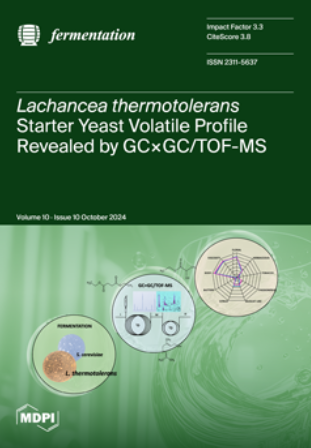A Review of Liquid and Gaseous Biofuels from Advanced Microbial Fermentation Processes
IF 3.3
3区 农林科学
Q2 BIOTECHNOLOGY & APPLIED MICROBIOLOGY
引用次数: 1
Abstract
Biofuels are the sustainable counterparts of fossil fuels to meet the increasing energy demands of the current and future generations. Biofuels are produced from waste organic residues with the application of mechanical, thermochemical and biological methods and processes. While mechanical and thermochemical conversion processes involve the use of heat, pressure, catalysts and other physicochemical attributes for the direct conversion of biomass, biological conversion requires microorganisms and their enzymes as biocatalysts to degrade the fermentable substrates into biofuels and biochemicals. This article highlights the advances and opportunities in biological conversion technologies for the development of a closed-loop biorefinery approach. This review highlights the distinction between biological and thermochemical conversion technologies, including a discussion on the pros and cons of the pathways. Different categories of biological conversion processes, such as enzymatic saccharification, submerged fermentation, solid-state fermentation and simultaneous saccharification and fermentation are also discussed in this article. The main essence of this article is the description of different fermentative technologies to produce next-generation biofuels, such as bioethanol, biobutanol, biomethane, biohydrogen and biodiesel. This article provides a state-of-the-art review of the literature and a technical perspective on the bioproduction of bioethanol, acetone–ethanol–butanol fermentation, anaerobic digestion, photo/dark fermentation, and the transesterification of lignocellulosic substrates to produce the above-mentioned biofuels. In addition, recommendations for improving bioprocessing efficiency and biofuel yields are provided in this comprehensive article.先进微生物发酵液体和气体生物燃料研究进展
生物燃料是化石燃料的可持续对应物,可满足当代和子孙后代日益增长的能源需求。生物燃料是利用机械、热化学和生物方法和工艺从废弃的有机残留物中生产出来的。虽然机械和热化学转化过程涉及使用热量、压力、催化剂和其他物理化学属性来直接转化生物质,但生物转化需要微生物及其酶作为生物催化剂,将可发酵底物降解为生物燃料和生物化学品。这篇文章强调了生物转化技术的进步和发展闭环生物精炼方法的机会。这篇综述强调了生物转化技术和热化学转化技术之间的区别,包括对这些途径的利弊的讨论。本文还讨论了不同类别的生物转化过程,如酶糖化、深层发酵、固态发酵以及糖化和发酵同时进行。本文的主要内容是描述生产下一代生物燃料的不同发酵技术,如生物乙醇、生物丁醇、生物甲烷、生物氢和生物柴油。本文对生物生产生物乙醇、丙酮-乙醇-丁醇发酵、厌氧消化、光/暗发酵以及木质纤维素底物的酯交换反应生产上述生物燃料的文献和技术进行了最新综述。此外,本文还提出了提高生物加工效率和生物燃料产量的建议。
本文章由计算机程序翻译,如有差异,请以英文原文为准。
求助全文
约1分钟内获得全文
求助全文
来源期刊

Fermentation-Basel
BIOTECHNOLOGY & APPLIED MICROBIOLOGY-
CiteScore
3.80
自引率
18.90%
发文量
594
审稿时长
7 weeks
期刊介绍:
Fermentation-Basel is an international open access journal published by MDPI, focusing on fermentation-related research, including new and emerging products, processes and technologies, such as biopharmaceuticals and biotech drugs. The journal enjoys a good reputation in the academic community and provides a high-impact forum for researchers in the field of bioengineering and applied microbiology.
 求助内容:
求助内容: 应助结果提醒方式:
应助结果提醒方式:


